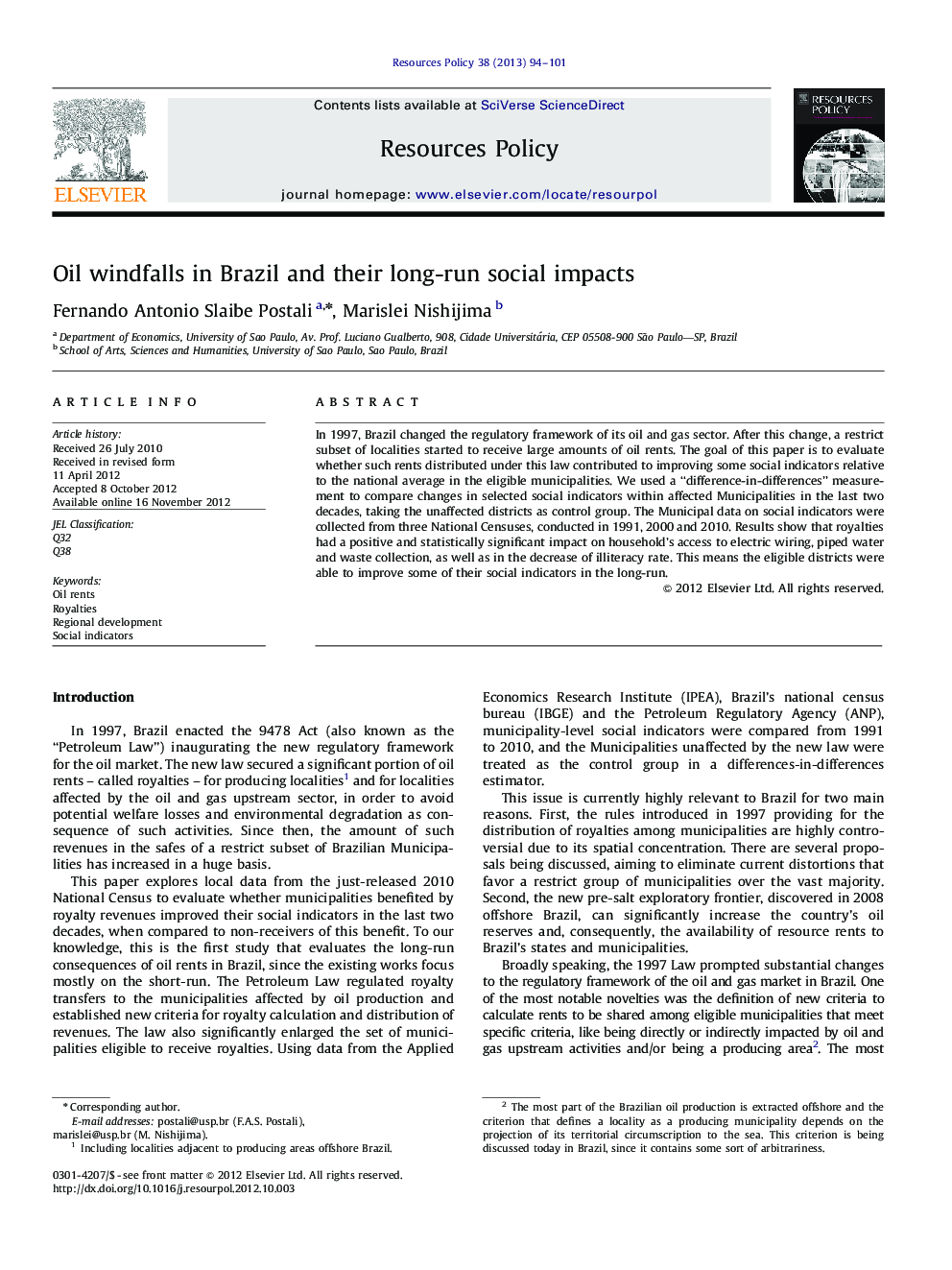| کد مقاله | کد نشریه | سال انتشار | مقاله انگلیسی | نسخه تمام متن |
|---|---|---|---|---|
| 986323 | 934851 | 2013 | 8 صفحه PDF | دانلود رایگان |

In 1997, Brazil changed the regulatory framework of its oil and gas sector. After this change, a restrict subset of localities started to receive large amounts of oil rents. The goal of this paper is to evaluate whether such rents distributed under this law contributed to improving some social indicators relative to the national average in the eligible municipalities. We used a “difference-in-differences” measurement to compare changes in selected social indicators within affected Municipalities in the last two decades, taking the unaffected districts as control group. The Municipal data on social indicators were collected from three National Censuses, conducted in 1991, 2000 and 2010. Results show that royalties had a positive and statistically significant impact on household’s access to electric wiring, piped water and waste collection, as well as in the decrease of illiteracy rate. This means the eligible districts were able to improve some of their social indicators in the long-run.
► We assess the long-run impact of oil windfalls on social indicators in Brazil.
► We use a differences-in-differences estimator with data from National Censuses.
► Dependent variables are energy wiring, piped water, waste collection and illiteracy.
► Results show that oil rents impacted positively on such indicators.
Journal: Resources Policy - Volume 38, Issue 1, March 2013, Pages 94–101